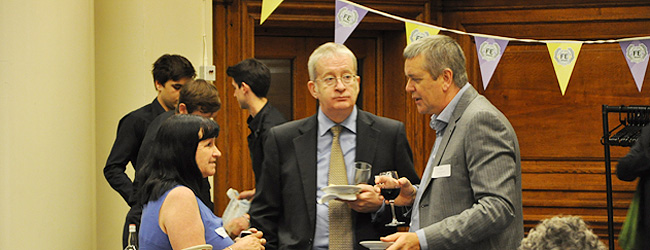John Hayes, Minister of State for FE, Skills & Lifelong Learning, has today announced that the government will introduce a series of support measures for those taking out 24+ Advanced Learning Loans (24+ ALL).
In a written ministerial statement Hayes said, “This is the first time that loans have been available in Further Education, and we want to ensure that appropriate safeguards for learners are in place. I can therefore confirm that we will put in place an extensive and substantial range of support measures alongside the introduction of loans.”
The support measures announced today included:
- An offer to individuals taking Access to Higher Education courses that on completion of their Higher Education programme, the Student Loans Company will write off the amount outstanding on the loan for their Access course.
- A £50 million bursary fund over two years, disbursed by colleges and training organisations. This bursary is intended to help vulnerable learners such as those with learning difficulties or disabilities, parents who need help with childcare, and ex-military personnel. The level of the bursary fund will be kept under review.
- Additional information, advice and guidance for adults who are uncertain about loans, provided by the National Careers Service, including a targeted face to face session – a “learning health check” – with a careers adviser for older adults who research published by BIS in May suggest are less likely to respond positively to the idea of taking out a loan.
Commenting on the government’s announcement, Shadow Minister for Further Education, Gordon Marsden MP said:
“Alongside the further education sector, Labour has been raising concerns on the government’s plan for FE loans for months. That campaign has now produced significant concessions from Ministers over their plans to scrap direct support and enforce a loans system on some 375,000 adult learners. The concessions announced by Vince Cable today – over Access Courses to Higher Education, increasing support for STEM subjects and creating bursaries for the hardest hit and a focus on older learners – reflect the concerns which we have raised with ministers.
“While I welcome these concessions, real fears remain over the impact FE loans could have on the sector. Ministers’ own research found that just 1 in 10 learners would still definitely continue their courses if loans were introduced and BIS’s impact assessment predicting up to 150,000 could drop out of adult learning altogether – and the way these changes are being brought in without any real parliamentary scrutiny.
“I and my Labour colleagues will continue to fight fiercely for the principle that Adult and Further Education remains accessible to all as a vital lever for social mobility and widening participation. We must give those who miss out first time a proper second chance to gain skills and qualifications.”
Today’s announcements have been welcomed by some who have campaigned and lobbied for changes to 24+ ALL.
David Hughes, Chief Executive of NIACE, said, “”NIACE is relieved that Ministers and officials now recognise, publicly, that the loans policy involves real risks. The Minister listened carefully to our concerns and discussed possible solutions with us. From that the Government has come up with a welcome range of mitigating actions and NIACE will work closely with Government to ensure that any unexpected and unfair outcomes are minimised.
“We will continue to monitor how this works with the hope that our remaining concerns do not materialise. Where they do I am confident that the Minister will want to discuss further actions to ensure that this policy is a fair one in practice. We need to do everything we can to make sure that learners do not miss out on the opportunity to participate in learning and benefit from it.”
UCU general secretary, Sally Hunt, said: “This is a welcome step by the government and I am pleased that ministers have listened to UCU and other voices in the sector. However, we remained concerned that despite these new measures thousands of learners will still miss out on a second chance at education.”
Graham Hoyle, chief executive of the Association of Employment and Learning Providers, added that he hoped there would further announcements to come regarding VAT on 24+ ALL for independent providers.
“There is a concern that the big growth over the last two years in Advanced and Higher Apprenticeships for adults over 24 might cease and actually go into reverse. Adding to this concern would be any levying of VAT on loans in relation to independent provider provision as its independent providers who deliver the great majority of these apprenticeships. As the government is championing a growth in Higher Apprenticeships, I hope that early confirmation that VAT will not be levied will be forthcoming from ministers.”
However Jon Richards, UNISON national secretary for education & children’s services, argued that whilst changes are welcomed, the changes are being made to something that should not have been introduced. Richards said, “of course any measure that mitigates the impact of these unwelcome loans on the most vulnerable in our society should be commended, but these loans should not be introduced in the first place.
“These loans will force adult learners out of the system, and deny them the opportunity to develop much needed skills for the workplace, skills that, as unemployment continues to rise, are more important than ever before.
“These are grim times, particularly for young people, and if the government does not do more to prevent a lost generation, then the outlook for young people, destined to end up as just another number in unemployment figures, is bleak indeed.”


